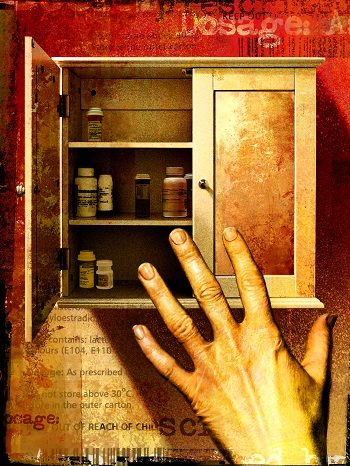Study May Help Explain Drug’s Lure, Despite Negative Consequences
The loved ones of an individual addicted to a destructive substance such as methamphetamine or heroin often watch, perplexed, as the addict destroys their life for a substance that makes them miserable.
A new study may help explain why addicts keep going back to a substance that produces an unpleasant consequence. Researchers at the University of Michigan recently uncovered clues to the change in motivation that often occurs in drug users as they become addicted by testing similar behaviors in animal models.
Changes in Brain Activity
The study found that a salt appetite can be manipulated in rats to transform something repulsive into a craving. Lead author Mike Robinson, a research fellow in the Department of Psychology , explained that the findings illustrate how activity in the brain could activate certain processes that cause a person to want something that they have previously disliked.
, explained that the findings illustrate how activity in the brain could activate certain processes that cause a person to want something that they have previously disliked.
Robinson says that the transformation of motivation is rooted in the use of events to activate certain circuits in the brain, located in a structure known as the nucleus accumbens. It is located at the base of the front area of the brain and is affected by the use of addictive drugs.
Certain reward stimuli are triggers for motivation, such as when a smell introduces hunger in a person who wasn’t previously hungry. Similarly, drug cues create cravings in those who are trying to abstain from using the drug. In some situations, these cues can activate desire for a substance that has been regarded as unpleasant.
Conditioning
Rats were exposed to a metal object that either represented a pleasant sugary taste or a strong Dead Sea salt taste. The rats were conditioned to nibble the sweet object and avoid the salty object.
At one point during the study the rats woke to the experience of a sodium appetite introduced through drugs administered the previous night. When exposed to the salty objects the rats immediately nibbled at it as if it were the sweet object they had previously preferred.
Robinson said that the salt cue became the focus of the rats’ cravings, despite their experience of the salt tasting unpleasant.
The immediate changes in the brain help provide insight into how something such as taking a drug could become a desirable event, even though the person taking the drug may be familiar with its unpleasant effects, thus derailing a person’s natural reward system.



